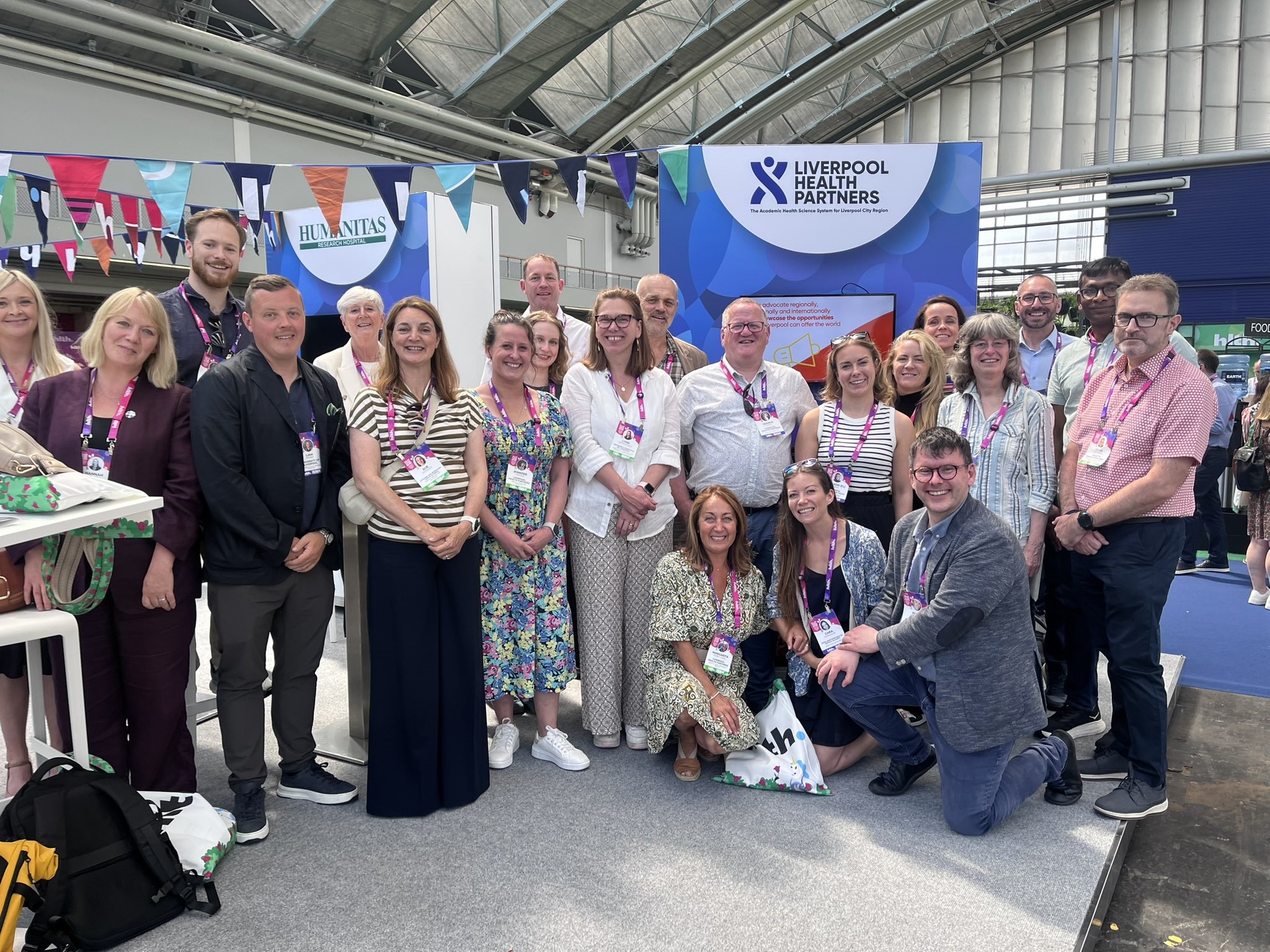Why the life course matters and collaboration is key to making the patient’s voice heard
I have worked in the NHS in various transformation, change and improvement roles for more than 20 years, I would be incredibly wealthy if I had a pound for every time I heard the terms silo working and patient voice.
I am not saying things haven’t changed over the past two decades but perhaps, more recently, I believe there has been an over focus on league tables, ranking, tariffs and measuring, often with the wrong outcomes in mind. All of which, in my opinion, promote silo working and don’t always truly value the voice of the patient and indeed the public.
I recently attended the NHS Confed Expo conference in Liverpool, and attended some thought provoking sessions. It was great to finally see people in the flesh and not to hear “you’re on mute” or “is that a legacy hand?” One event that really stood out for me was the pop up session Don’t forget the children: the importance of integrating children’s health and social care into system.
With so much of the focus on adult social care and the fact that children’s services are set up differently, it is important to make sure all areas of children and young people’s health and care are also integrated within our systems.
The chair, Naomi Eisenstadt was excellent, I genuinely could have listened to her all day. The panel speakers were equally as engaging. They were:
Naomi Eisenstadt CB, Chair Designate – Northamptonshire Integrated Care Board, Elliot Howard-Jones, Chief Executive of Hertfordshire Community NHS Trust, Michael Mckean, Consultant In Respiratory Paediatrics, RCPCH Vice-President for Policy – RCPCH, Mike Holmes, GP Partner Haxby Group and Chair, Nimbus Care, Rukshana Kapasi, Director of Health for Barnardo’s.
The discussion was running at the same time as a plenary session, where Health Secretary Sajid Javid was speaking, and already it felt like there was camaraderie in the room, simply because we had chosen to be in this particular session.
The panel gave me such food for thought and it felt good to be around people who really understood the importance of life course and the value of investing in health care in the early years and the impact that would have later in life. As a Programme Manager for Starting Well, Liverpool Health Partners, I spend a lot of time communicating the importance of life course.
Elliot started the session discussing how we should perhaps think of dog years – one year equalling seven – when we think about investing in children and young people, I was already sold.
It made me question how we communicate the importance of life course. I think the concept is obvious, so why does it sometimes feel like we have to justify focusing on maternal and child health?
I am now Programme Manager for LHP’s Starting Well Programme. I remember, my now Programme Director, Professor Michael Beresford, asking me about how I would influence colleagues based in adult NHS Trusts. I recall thinking at the time: “Isn’t this obvious? Surely, what we do as children will have an impact when we are older?” As I have learned over recent years, not everyone quite understands or believes in the importance of that life course view.
The panel also talked about how we should focus on getting the job done – JDI – Just Do It, (I think there is a term which contains an expletive). They discussed the concept of getting on and delivering, often when you don’t know exactly where you are heading – If you don’t know where you’re going, any road will get you there (Lewis Carroll). Essentially, you don’t always need a fully executed plan to get over the start line. You just need an idea and system working.
They spoke about how children were are inherently vulnerable and how as a society we can’t continue to function when we know there are vulnerable people, children, and their families living in poverty.
I sat listening and felt the weight of shame, how we – society – continue to go about our daily lives, while children and families are suffering. The health inequalities facing families across the country but, as we know felt acutely in parts of our region, are quite frankly disgusting.
I wholeheartedly agree with all of the above, but I also wholeheartedly believe in the need for evidence-based change and truly understanding what works for whom and why, otherwise we never learn from mistakes and are in danger of hitting the target and missing the point
The panel members also talked about the important of voice. Don Berwick’s “what matters to you, not what is the matter with you”, ringing in my ears and the need to start where the people/public/patients are but finish somewhere else.
The point being we need to understand the reality facing families, the struggles they face, what better health looks like for them, what they want from life and what really matters to them.
This view made me think about a project I had been lucky enough to work on which involved a group of researchers looking at the impact of Covid-19 lockdowns on children with Special Educational Needs and Disabilities (SEND) called Ask, Listen, Act. It found that this group of youngsters had been affected more deeply by lockdown and had suffered more disproportionately.
The project has gathered momentum and developed considerably over the last two years, this hasn’t been by accident or chance, but by a real commitment to partnership working.
I wondered why this project had resonated with so many, why had it been so powerful.
I’m ashamed to admit this hadn’t occurred to me before now, but it resonates because it has co-production running through its veins, right from the start in co-creating the application form with key stakeholders. The project team, Dr Emma Ashworth, Liverpool John Moores University, Dr Joanna Kirkby, Liverpool John Moores University, Prof. Lucy Bray, Edge Hill University, Prof. Amel Alghrani, University of Liverpool, brought co-creation to life for me.
The panel at NHS Confed talked about “what matters to me” and I think the Ask, Listen, Act study is a great example of listening to the public voice.
The research team visited schools to work with children to understand their experiences
The activities were designed to get the best out of children, to talk to them on a level that they could engage with. The youngsters were encouraged to draw, write, stick post-it notes or dictate their views on the key areas of priorities. Thumbs up and thumbs down templates were used to examine what the key challenges had been during the pandemic and what things had worked well. A post box and postcards were used to encourage participants to write or dictate a key message to the Prime Minister about the “most important” thing which needed to be done for children and young people with SEND now to help recovery from the pandemic.
I have learned so much working on this project. The team has shown me what great interdisciplinary, cross institution working looks like – always hugely grateful for the opportunity to learn from each other. This genuine collaboration and commitment to the voice of the stakeholder has led this project being referenced in the recent SEND review, green paper.
Following such a fantastic response to the study, and the development of tightly focused priorities, the team wanted to ensure that the participants’ voices were heard and change enacted. They sent bespoke evidence briefings to MPs, and several expressed an interest in meeting the team to discuss the research findings and key asks.
So far, they have met with Dr Liam Fox, Margaret Greenwood, and Sally-Ann Hart (vice-chair of the SEND APPG). The team asked the MPs what they could do for us, and are currently following up on the MPs’ suggestions, such as creating a more in-depth education evidence briefing for the Minister for Children and Families.
The research team worked tirelessly to try and consider how the findings could influence policy and practice, at the heart of this commitment is the belief that research findings should be used responsibly and how the voices of children and young people with SEND and their families should be heard and, importantly, acted upon.
I would urge anyone who wants to learn about the power of collaboration and to understand why the life course matters to read about and be inspired by the work of our group. It really is “patient voice” at its best.



